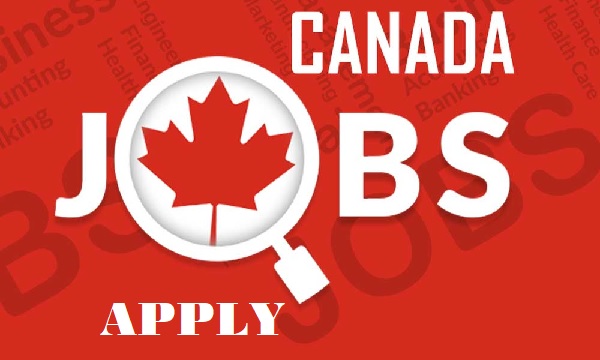Moving to a new country can feel overwhelming, especially in the early days. This step-by-step guide will help you navigate the process of settling in Canada and ensure a smoother transition into your new life. From understanding your rights as a new immigrant to connecting with local support services, each step is important for your success.
You’ll find valuable tips on where to find help and resources tailored for newcomers. Embracing your new home involves more than just unpacking boxes; it’s about integrating into the community and making meaningful connections. This guide will provide insight into practical steps that make settling in Canada a rewarding experience.
As you embark on this journey, remember that help is available. With the right information and resources, you can turn challenges into opportunities and truly feel at home in Canada.
Understanding Canadian Immigration Categories
Canada offers various immigration categories to help new immigrants find the best path for settling in the country. Each category serves different needs and requirements, depending on your background, skills, and family connections.
Federal Economic Class
The Federal Economic Class includes programs designed for skilled workers who can contribute to Canada’s economy. Key programs in this class are the Express Entry system, which manages applications for the Federal Skilled Worker Program, Federal Skilled Trades Program, and the Canadian Experience Class.
To qualify for these programs, you typically need to meet specific criteria, such as having a certain level of education and work experience. You should also showcase your language skills in English and/or French. A points-based system evaluates your profile, enhancing your chances of receiving an Invitation to Apply (ITA) for permanent residency.
Provincial Nominee Program
The Provincial Nominee Program (PNP) enables provinces and territories to nominate individuals for immigration based on their specific economic needs. Each province has its own criteria, focusing on skills in demand in its local job market.
To apply through the PNP, you generally need a job offer from an employer in the province or must demonstrate that you can settle and contribute to the local economy. Upon receiving a nomination, you can apply for permanent residency through the federal government.
Family Sponsorship
The Family Sponsorship program allows Canadian citizens and permanent residents to sponsor their family members for immigration. This enables families to reunite in Canada, which is an essential aspect of the country’s immigration policy.
Eligible sponsors can bring spouses, partners, children, parents, and grandparents to Canada. They must meet specific income requirements and take responsibility for their sponsored family members. Once approved, the sponsored person can apply for permanent residency.
Humanitarian and Compassionate Consideration
Humanitarian and Compassionate (H&C) grounds offer a pathway for individuals who may not meet the standard immigration requirements but have compelling reasons to stay in Canada. This category is often used by people facing unusual hardships, such as fleeing violence or extreme poverty.
To apply on H&C grounds, you need to provide evidence supporting your case, demonstrating why it would be unjust or unfair to refuse your application. Each case is assessed individually, and the decision is based on various factors, including your personal circumstances and ties to Canada.
Preparing for the Move
Before you move to Canada, it’s crucial to organize your documents and plan your finances. Being prepared in these areas will ease your transition and help you settle more quickly.
Document Checklist
Gathering important documents is essential for a smooth move. Start with the following items:
- Passport: Ensure it is valid for the duration of your stay.
- Visa: Have your immigration visa or permits ready.
- Job Offer Letter: If you have a job lined up, keep a copy of this document.
- Educational Credentials: Bring proof of your qualifications, such as diplomas and transcripts.
- Medical Records: Include vaccination histories and other health documents.
- Financial Documents: Bank statements and proof of income will be useful.
Make several copies of each document. Store them safely in a file, both physically and digitally. This way, you’ll have access to them when needed.
Financial Planning
Financial planning helps you manage costs effectively after your move. Start by considering these key points:
- Budgeting: Calculate your initial costs, such as moving expenses, housing, and daily living.
- Banking: Research Canadian banks. You may want to open an account before arriving.
- Currency Exchange: Understand the exchange rates and plan for converting your money.
- Emergency Funds: Set aside savings for unexpected costs. Aim for at least three months’ worth of living expenses.
Understanding the cost of living in your new city is crucial. Expenses can vary widely between provinces. Make a list of expected monthly costs, including rent, groceries, and transportation, to ensure you’re financially ready.
Establishing Yourself in Canada
Establishing yourself in Canada involves several key steps. You’ll need to find a place to live, secure health insurance, understand your tax obligations, and register for a Social Insurance Number (SIN). Each of these steps is crucial for a smooth transition into your new life.
Finding a Place to Live
Start by exploring different neighborhoods to find a suitable living space. Consider factors like proximity to work, schools, and public transportation. Websites like Craigslist, Kijiji, and local real estate platforms can help you find listings.
When renting, read the lease carefully. Make sure you know your rights and responsibilities as a tenant. It’s often wise to visit a property in person to assess its condition.
Once you find a place, you may need to provide documents, such as proof of income or references. Look into utilities and internet services available in your area, as these are essential for settling in.
Securing Health Insurance
In Canada, healthcare is primarily publicly funded. However, new residents may need private health insurance until they qualify for coverage. Each province has different rules about when you gain access to provincial health care.
Research private insurance plans that suit your needs. Services often cover doctor’s visits, hospital stays, and some prescriptions. Compare costs and coverage options before making a decision.
Once you establish residency, apply for your provincial health card. This card is crucial for accessing healthcare services. Remember to bring the necessary identification and documents when applying.
Understanding Canadian Tax Obligations
As a new resident, you must understand your tax responsibilities. Canada requires you to file a tax return if you earn income while living there. Taxes support health care, education, and infrastructure.
Familiarize yourself with the tax year, which runs from January 1 to December 31. You typically need to file your tax return by April 30 of the following year.
Consider seeking help from a tax professional or using tax software to ensure you understand deductions and credits available to you. Keep records of your income and expenditures to simplify the filing process.
Registering for a Social Insurance Number
To work in Canada or access government services, you need a Social Insurance Number (SIN). This unique number is essential for tax purposes and helps keep track of your earnings.
Apply for your SIN at a Service Canada office. Bring identification that proves your identity and immigration status. You can also apply online or by mail, but in-person registration is often faster.
Keep your SIN confidential and secure. Only share it when necessary, such as when starting a job or applying for benefits. Having your SIN will make it easier to navigate work and financial systems in Canada.
Integration into Canadian Society
Successfully settling in Canada requires actively engaging with the community, finding employment, and adapting to cultural expectations. Each of these areas plays a vital role in helping you feel at home and connected in your new country.
Employment and Education
Finding a job in Canada involves understanding the local job market and possibly upgrading your skills. Many immigrants face challenges due to differences in qualifications and experience.
Consider taking courses to improve your qualifications. Community colleges and online platforms offer a variety of programs. Networking is also crucial. Attend job fairs and join professional associations relevant to your field.
For education, familiarize yourself with Canada’s education system. If you have children, research schools in your area to ensure they have the best options available.
Cultural Adaptation
Cultural adaptation means learning about Canadian customs, traditions, and values. It helps you connect with others and feel more at ease in social situations.
Start by attending local events, such as festivals or community gatherings. This will introduce you to Canadian culture while allowing you to meet new people.
You may also want to join local clubs or organizations that reflect your interests. This way, you can share your culture while learning about others.
Language can be a barrier. Consider enrolling in English or French language classes. This will help improve your communication skills and boost your confidence.
Community Involvement
Getting involved in your community strengthens your connections and support system. Look for volunteer opportunities with local nonprofits, schools, or community centers.
Volunteering not only helps others but also enhances your resume and builds your network.
You can also join local interest groups or sports teams. These activities can introduce you to like-minded individuals and foster friendships.
Participating in your community shows your willingness to embrace your new home and contribute positively.


